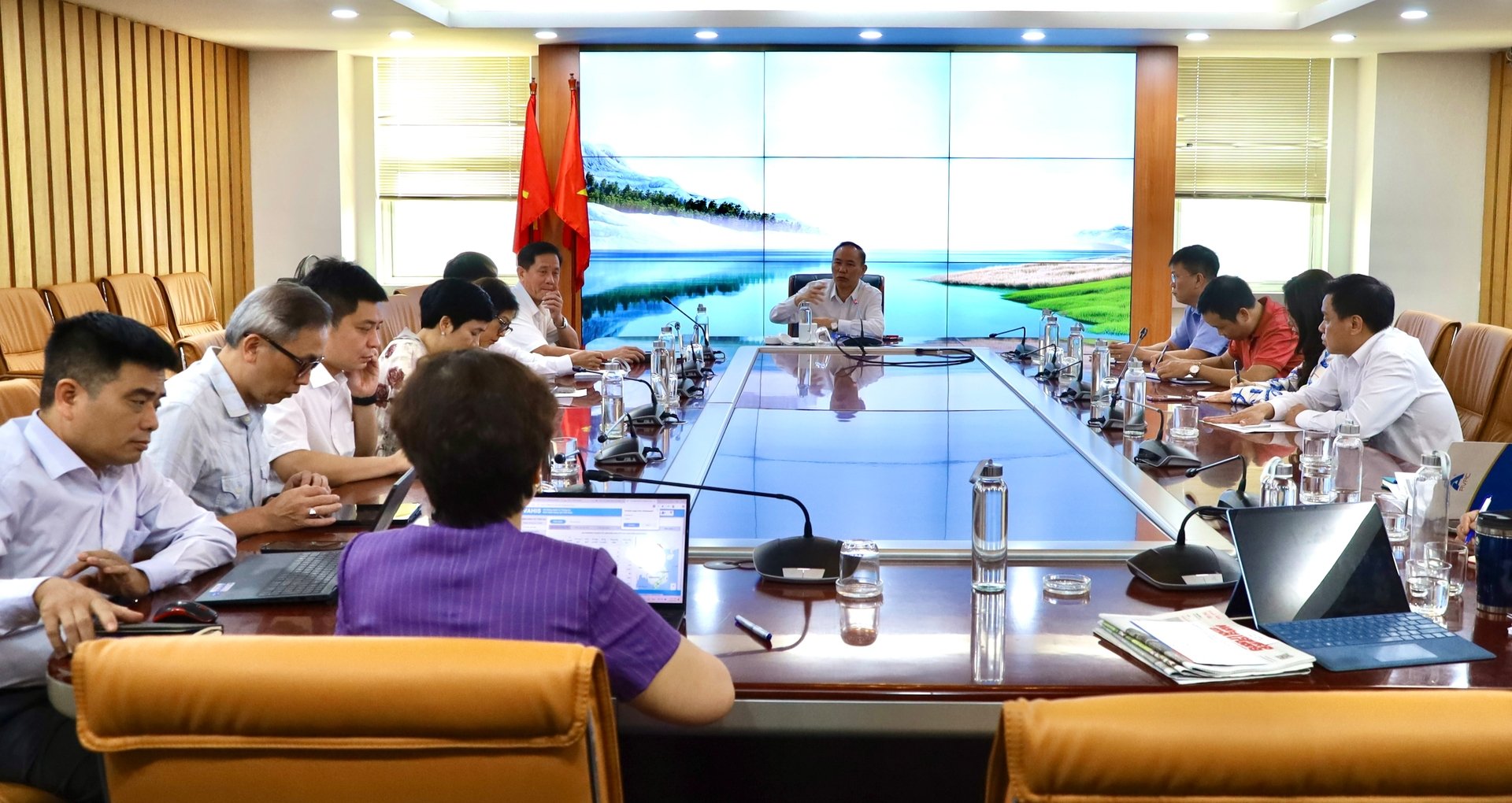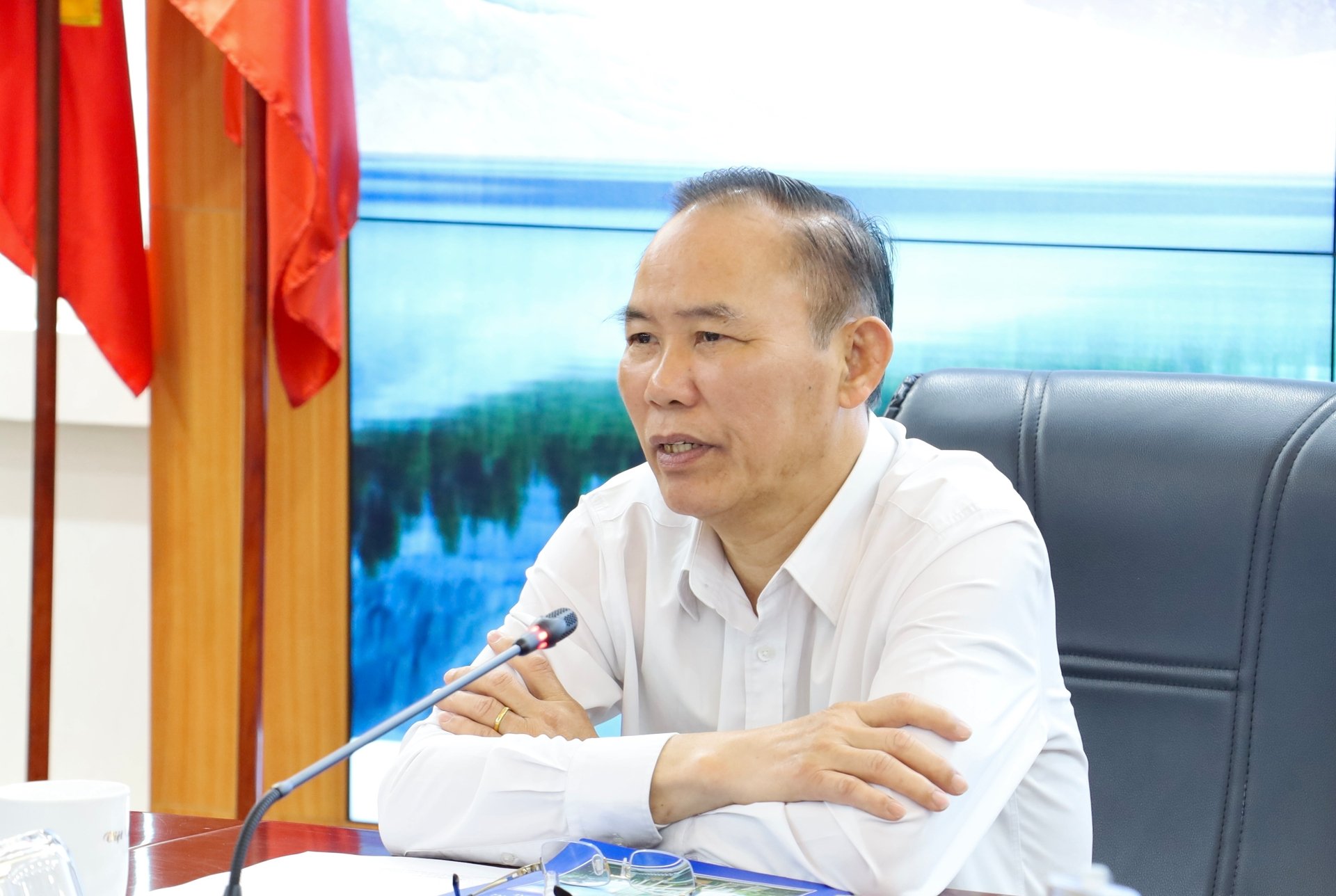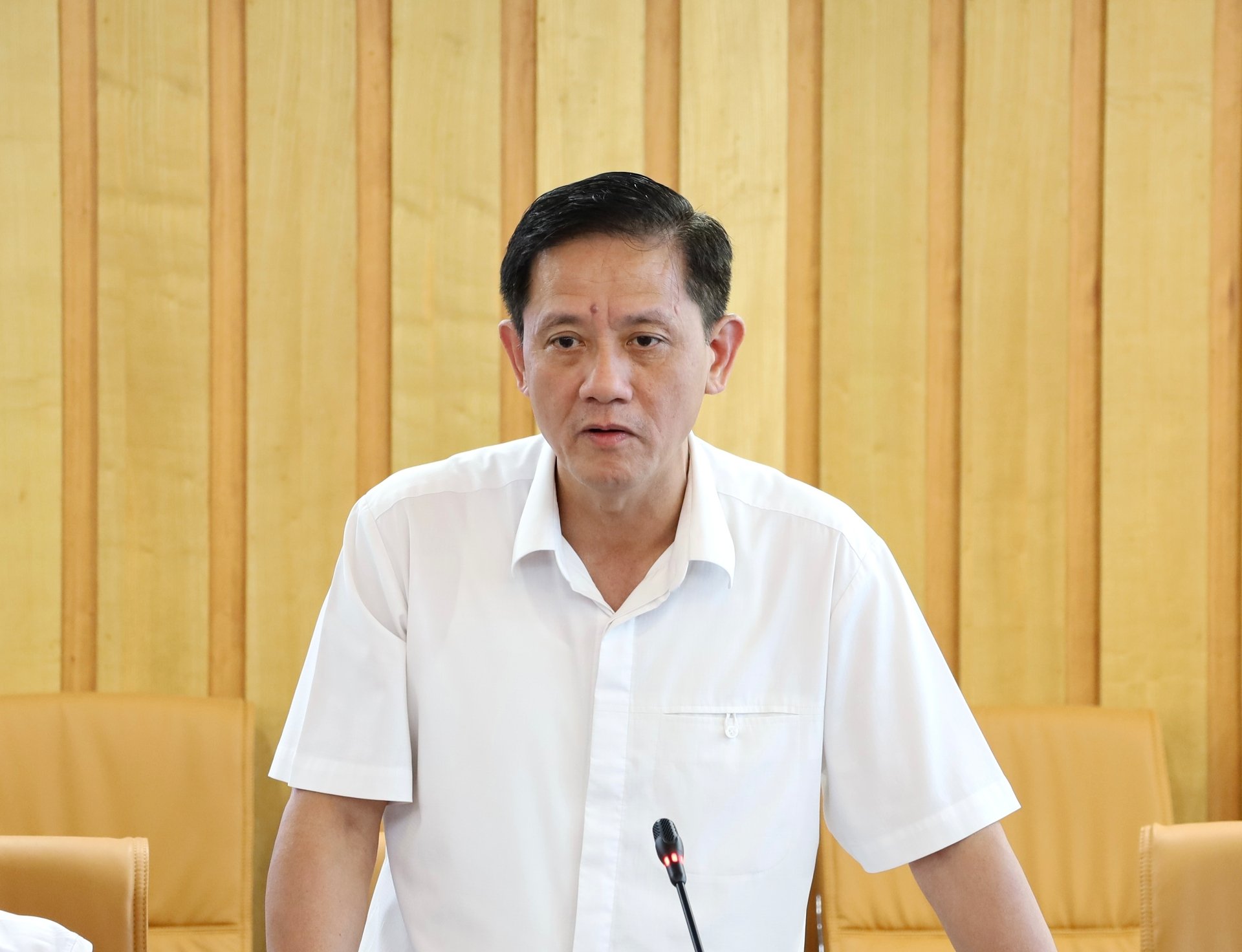December 22, 2025 | 10:08 GMT +7
December 22, 2025 | 10:08 GMT +7
Hotline: 0913.378.918
December 22, 2025 | 10:08 GMT +7
Hotline: 0913.378.918

On May 30, Deputy Minister of Agriculture and Environment Phung Duc Tien held a working session with the Departments of Livestock Production and Animal Health, along with relevant stakeholders, to discuss directions for preventing African swine fever in the near future. Photo: Phuong Linh.
According to Mr. Duong Tat Thang, Director General of the Department of Livestock Production and Animal Health, early in 2025, the Department advised the Ministry’s leadership to issue directives to local authorities on African swine fever (ASF) prevention and control in pig herds.
In 2024, the Department proactively monitored the disease situation closely, organizing inspection teams to visit localities for supervision and detailed reporting. Thanks to these efforts, ASF outbreaks decreased by 63%, and the number of pigs dead or culled fell by up to 80%. Overall, the livestock sector, particularly pig farming, continues to develop, indicating that “disease prevention and control efforts remain very effective.”
However, challenges remain, such as underreporting or concealment of outbreaks due to economic loss concerns. The small-scale, dispersed nature of livestock farming also complicates control efforts. The Department has identified five key factors for sustainable livestock development: herd repopulation, breeding stock, feed, environment, and especially disease control.
“ASF is a major threat that requires proactive prevention rather than treatment. Trusted vaccines like the domestic ASF vaccine, NAVET-ASFVAC, and AVAC ASF LIVE have about 93% efficacy, but there is still a risk of unexpected incidents. I believe more widespread communication is needed to guide farmers on vaccinating the correct animals following proper procedures. This includes inspecting and assessing pig herds before vaccination to maximize effectiveness,” Mr. Thang stated.
Regarding the implementation of African swine fever vaccination, Mr. Thang acknowledged some difficulties due to the emergence of new virus variants, while the vaccine has yet to "keep up." Therefore, Mr. Thang believes that going forward, the approach to vaccines must remain focused on safety, high protection rates, and affordable pricing.

According to Deputy Minister Phung Duc Tien, vaccine production must be strictly regulated to ensure disease safety for the community. Photo: Phuong Linh.
Regarding concerns about ineffective vaccine use, Ms. Nguyen Thi Kim Lan, General Director of NAVETCO Central Veterinary Medicine Joint Stock Company, explained that some cases of pig deaths after vaccination could be due to animals already being infected prior to vaccination.
"Vaccines are preventive, not therapeutic," Ms. Lan emphasized. "If pigs are already sick before vaccination, the vaccine will not be effective. Moreover, to ensure disease prevention, farmers must follow biosecurity measures, vaccinate the correct animals, and fully comply with instructions from regulatory authorities."
Deputy Minister of Agriculture and Environment Phung Duc Tien praised the efforts of enterprises in researching and producing vaccines against African swine fever. He also affirmed the important roles of the Department of Livestock Production and Animal Health and the Central Veterinary Drug Testing Center throughout the production process.
In practice, many farms still fail to follow professional guidance properly. Some farmers continue to use vaccines on the wrong animals, such as sows or piglets under four weeks old. There are also cases where a farm has sows, boars, and fattening pigs, but the vaccine is only intended for fattening pigs.
Additionally, vaccine prices remain high and largely dependent on budget support, while farmers still lack confidence in the vaccine’s effectiveness

Director General Duong Tat Thang emphasized that for sustainable livestock development, five key factors must be ensured: herd repopulation, breeding stock, feed, environment, and disease control. Photo: Phuong Linh.
Deputy Minister Tien emphasized the crucial role of communication in helping livestock households understand the principles and techniques of vaccine administration. He also called for organizing awareness-raising conferences to promote disease prevention, particularly against African swine fever.
"Vaccination is not only a solution for disease control but also a driver of economic growth. Therefore, companies such as NAVETCO Central Veterinary Medicine Joint Stock Company and AVAC Vietnam Joint Stock Company should continue researching and developing vaccines," Mr. Tien stressed. "At the same time, vaccine production must be strictly regulated to ensure public health safety."
In addition, Deputy Minister Tien requested the Department of Livestock Production and Animal Health to promptly issue guiding documents and direct provincial authorities to implement coordinated and timely measures to enhance the effectiveness of ASF prevention and control in the coming period.
Translated by Phuong Linh

(VAN) The 2025 Joint Response Plan (JRP) identifies three core priorities and calls for $96.2 million to support disaster recovery for 1.4 million people.

(VAN) Risk assessment methodology enables early risk identification, rational resource allocation, and the development of control measures tailored to the food value chain.

(VAN) Once considered a waste product to be burned, rice straw in the Mekong Delta is now being collected and processed through mechanization and biotechnology, paving the way for a sustainable circular agricultural model.

(VAN) Risk assessment in food safety management not only helps protect public health but also promotes sustainable development.

(VAN) Prime Minister chaired the 26th meeting of the National Steering Committee on Illegal, Unreported, and Unregulated (IUU) Fishing.

(VAN) Cuba is currently streamlining procedures to attract investors, with many new policies shaped by the practical experiences of Vietnamese projects operating in the country.

(VAN) Patrol Team No. 15 has been executing patrol, inspection, and control duties in the Southwest waters, a region identified as having a high risk of violations.